Why Is My Temperature Gauge Rising But My Car Is Not Overheating?
A climbing temperature gauge is concerning, signaling potential overheating issues. But surprisingly, engines can run hotter that normal without actually overheating.
Let’s look at some of the potential causes of increased engine operating temperatures, without actual overheating (they’re not all serious). We’ll also tell you what to do as soon as you notice your temp gauge rising.
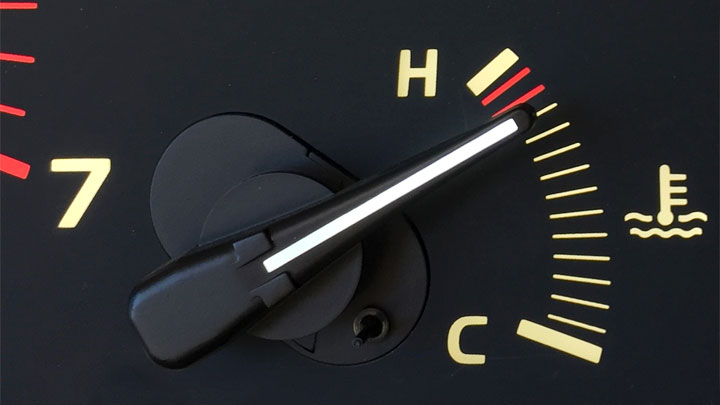
Related: Has Your Temperature Gauge Stopped Working? (Here’s Why)
Causes of a Car That’s Running Hot But Not Overheating
A vehicle’s engine can run hot, but not overheat, for a variety of reasons. Understanding the potential causes behind such issues can prove valuable when attempting to remedy the problem at hand.
The following are several of the most likely causes for a gradual increase in engine temperature.
#1 – Faulty Water Pump
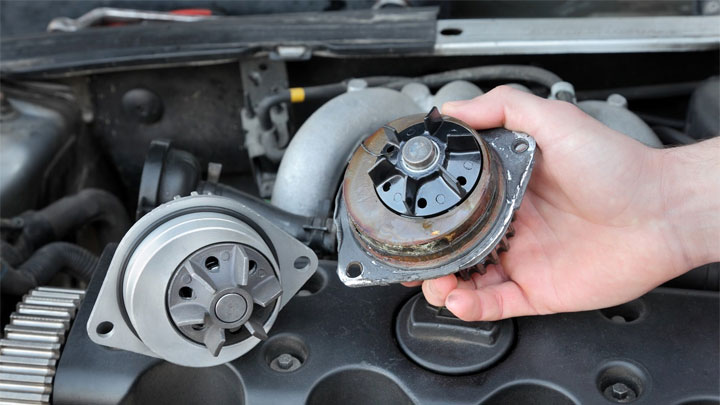
If your vehicle’s engine is running hotter than normal, yet is not truly overheating, a faulty water pump might be to blame. An engine’s water pump generally circulates coolant between a vehicle’s radiator, and the engine block itself.
However, damage to a water pump’s impeller can prevent this circulation from taking place with any efficiency.
#2 – Sticking Thermostat
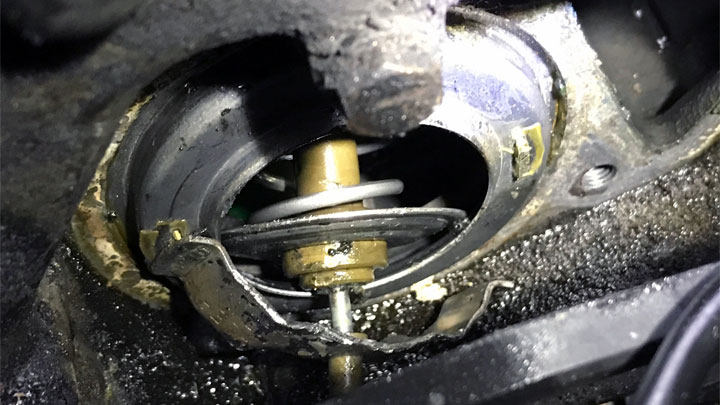
A partially stuck thermostat can prevent coolant from circulating as intended, thereby causing an engine to run hotter than normal. When stuck in between fully-opened and fully-closed positions, a thermostat serves as little more than a restriction within the cooling system.
In this state, heat is not properly exchanged between the engine itself, and a vehicle’s radiator. Fortunately, the cost to replace a thermostat is typically fairly low.
#3 – Blockages In Cooling System
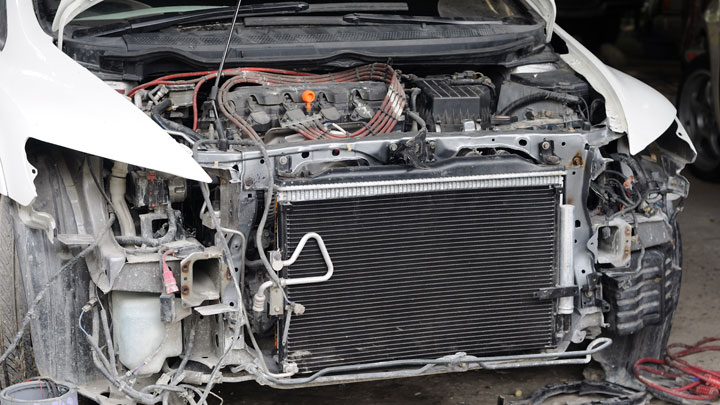
Much like the example of the sticking thermostat mentioned above, any blockage or restriction within an engine’s cooling system can cause a vehicle to run hotter than normal.
This condition is most commonly observed when a vehicle’s radiator becomes clogged with rust or other forms of sediment. A collapsed radiator hose would have a similar outcome.
#4 – Inoperable Engine Fan
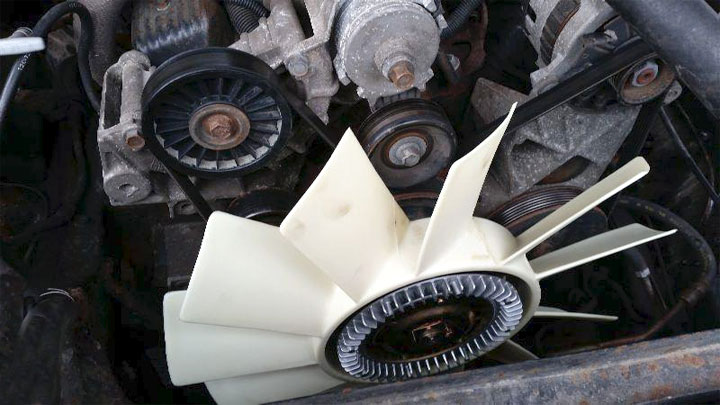
An engine’s cooling fans are tasked with distributing airflow across the face of a vehicle’s radiators. For this reason, an inoperable cooling fan or fan relay can prove problematic, thereby causing an engine to run at higher temperatures than would otherwise be observed.
In such instances, fan replacement or the repair of a fan’s control circuit is required to restore proper temperature readings.
Related: DTC P0480
#5 – Blown Head Gasket
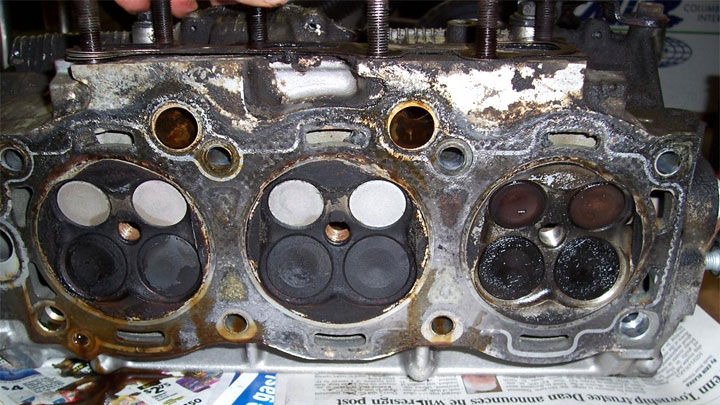
A blown head gasket can also cause an engine to run at higher than normal temperatures. This often comes as the result of coolant loss, attributed to cylinder-to-cooling jacket leakage.
However, a blown head gasket can also cause combustion gasses to leak into an engine’s cooling system, thereby causing a noticeable increase in operating temperature.
#6 – Low Coolant Levels
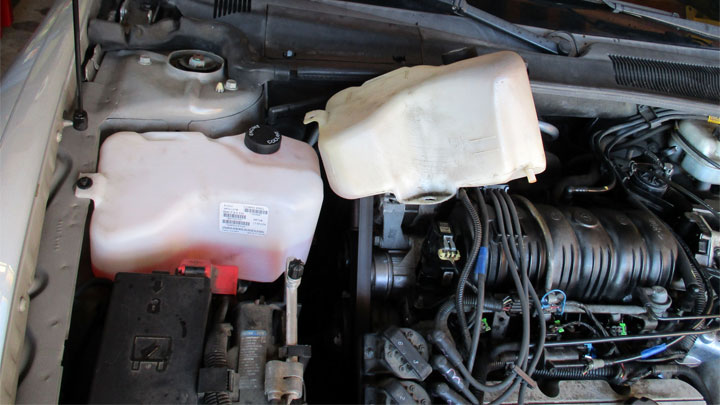
In many cases, a slight increase in engine operating temperature can come as the result of little more than low coolant within an engine’s radiator.
This occurs when an engine’s cooling system is subject to one or more leaks, even if they are relatively minor in severity. When this occurs, there is simply not enough coolant remaining to provide adequate engine cooling.
#7 – Faulty Temperature Sensor or Gauge
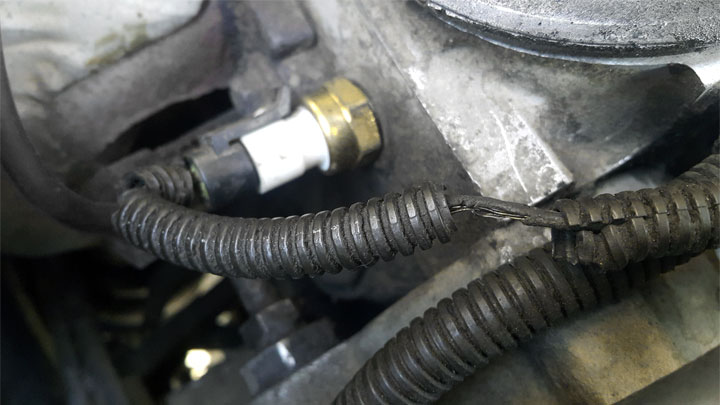
In certain instances, a vehicle’s engine might actually be running no hotter than normal, despite what the vehicle’s temperature gauge reads.
A faulty temperature probe or gauge might be providing false feedback, making you believe that an issue is at hand, where none truly exists.
What To Do If You Notice Your Temperature Gauge Rising
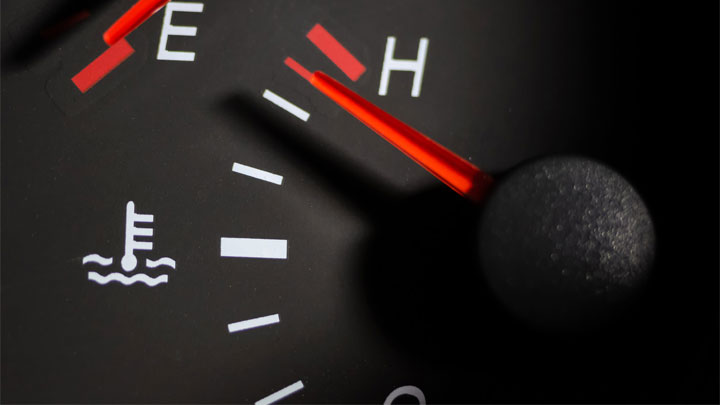
If you notice your vehicle’s temperature gauge starting to rise, you should pull to the side of the road, and shut off your vehicle.
While your engine might not be currently overheating, any irregularities in operating temperature could indicate the potential for additional temperature-related issues. Once your engine has cooled, you can proceed home, or to a nearby service center.
It is always important to take every possible precaution whenever you notice that your engine’s operating temperature is not regulating as expected. If concerns of this type progress in severity, eventually leading to overheating, severe engine damage can result.
An overheated engine can easily blow a head gasket, warp a cylinder head, or crack a block.
In any event, the root cause of any temperature-related irregularities should be diagnosed and addressed as soon as possible. Doing so prevents the possibility of eventual overheating and the resulting damage that often follows.
If you do not feel comfortable diagnosing such an issue yourself, you should schedule an appointment with an independent mechanic or dealership service center at your earliest convenience.
See Also: What to Do if Your Transmission Is Overheating
Do Some Vehicles Simply Run Hotter Than Others?
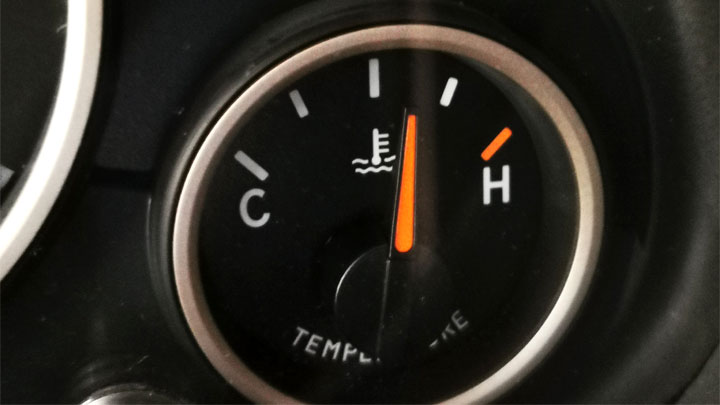
Some vehicles do naturally run hotter than others, though such discrepancies tend to be limited. The reason that some vehicles tend to run hotter than others relates to the rated temperature of an engine’s thermostat.
This specialized component controls the flow of an engine’s coolant between its block/cylinder heads, and a vehicle’s radiator.
Thermostats come in a variety of preset temperatures, which signify the point at which the thermostat itself opens, allowing flow and thermal transfer to take place. The higher a thermostat’s temperature rating, the hotter an engine will run.
Manufacturers select a particular thermostat, based on the ideal temperature required to facilitate efficient combustion.
Temp Gauge Rises When: Going Uphill, Idling, or When A/C Is On

If your engine’s temperature only rises past normal under one of the above conditions, a marginalized cooling system is almost always to blame. This is due to the fact that an engine’s cooling system is never taxed harder than when a vehicle is traveling up a steep grade, running with the air conditioning on, or idling for extended periods of time.
When hotter than normal temperature readings are observed during such operation, a lack of cooling system efficiency is the likely culprit. In many cases, a general lack of coolant is to blame, due to one or more leaks within the system. However, blockages within the cooling system can also cause similar issues.
Another likely culprit behind overheating during periods of heavy load is a faulty cooling fan. Without a functioning cooling fan, an engine is largely unable to regulate its operating temperatures as would otherwise be possible.
- P0480 Code (Symptoms, Causes, and How to Fix) - Apr 19, 2024
- Car Temperature Gauge Stopped Working? (Here’s Why) - Apr 15, 2024
- Ignition Coil vs Coil Pack (What’s the Difference?) - Apr 8, 2024

I have been searching for info about this subject for a long time and yours is the greatest. Thank you so much for sharing the post.